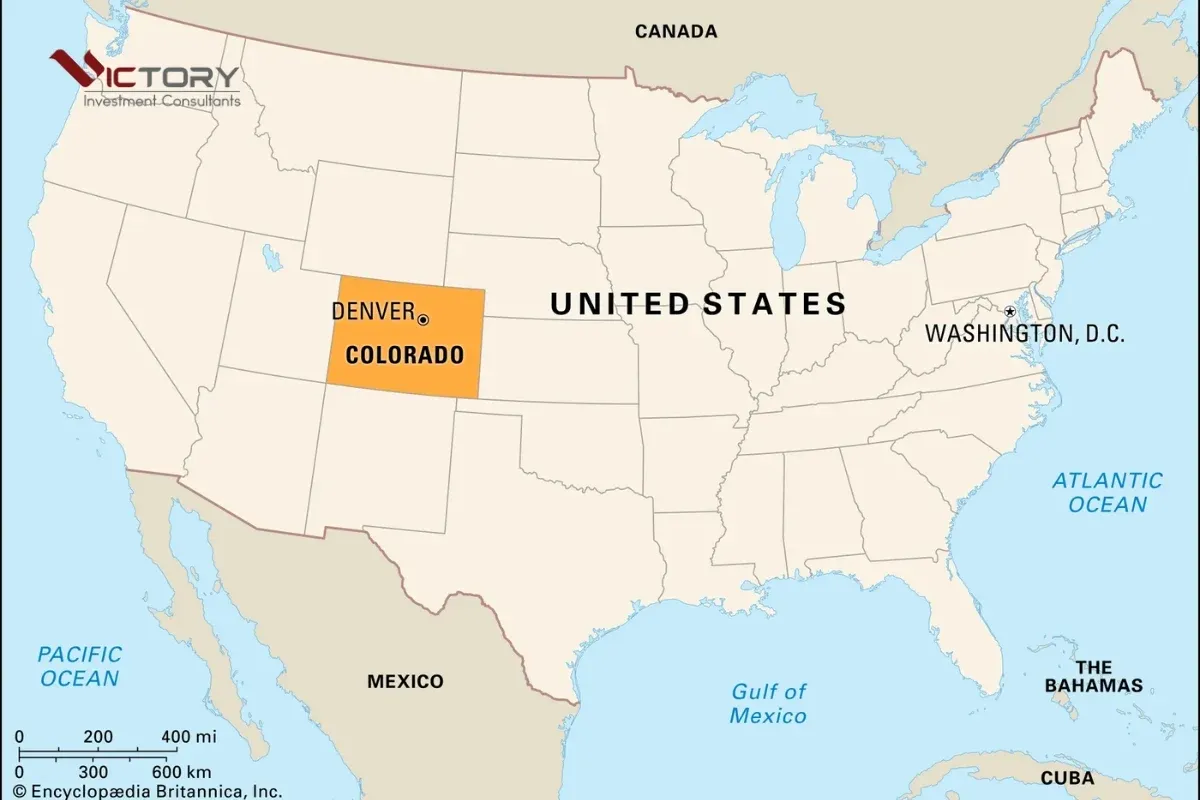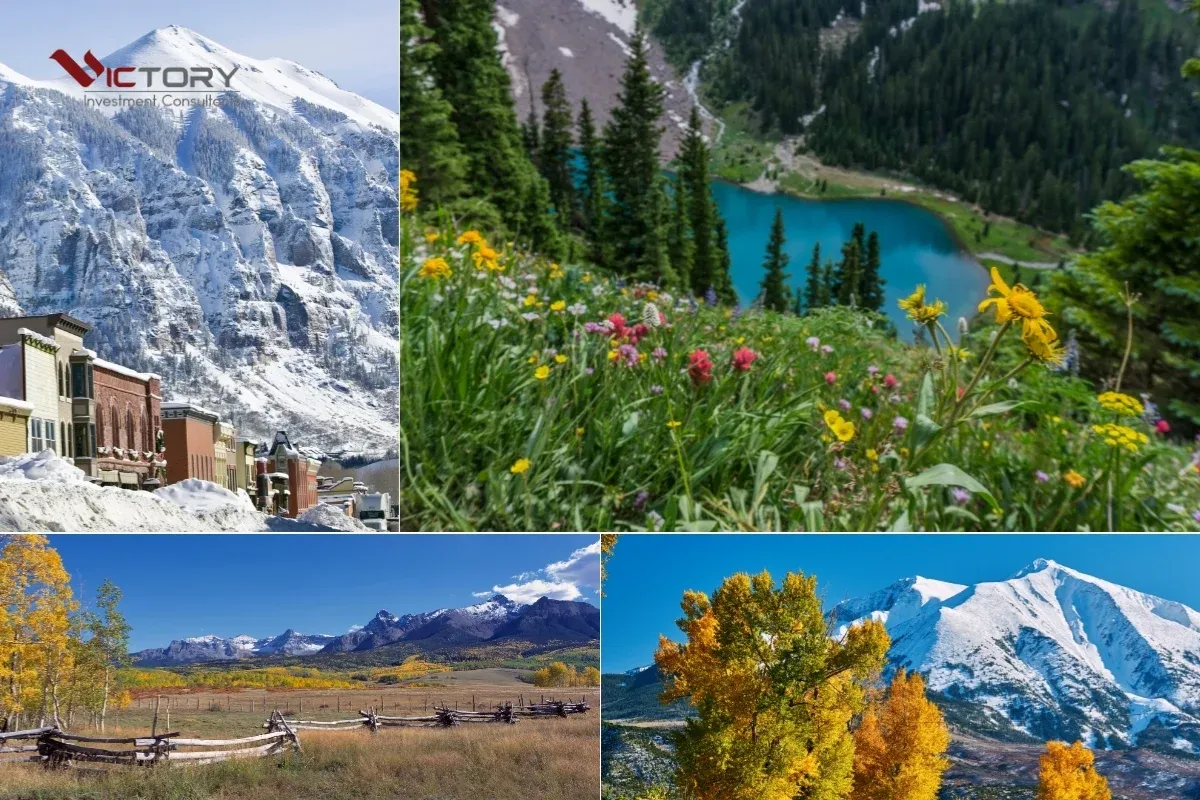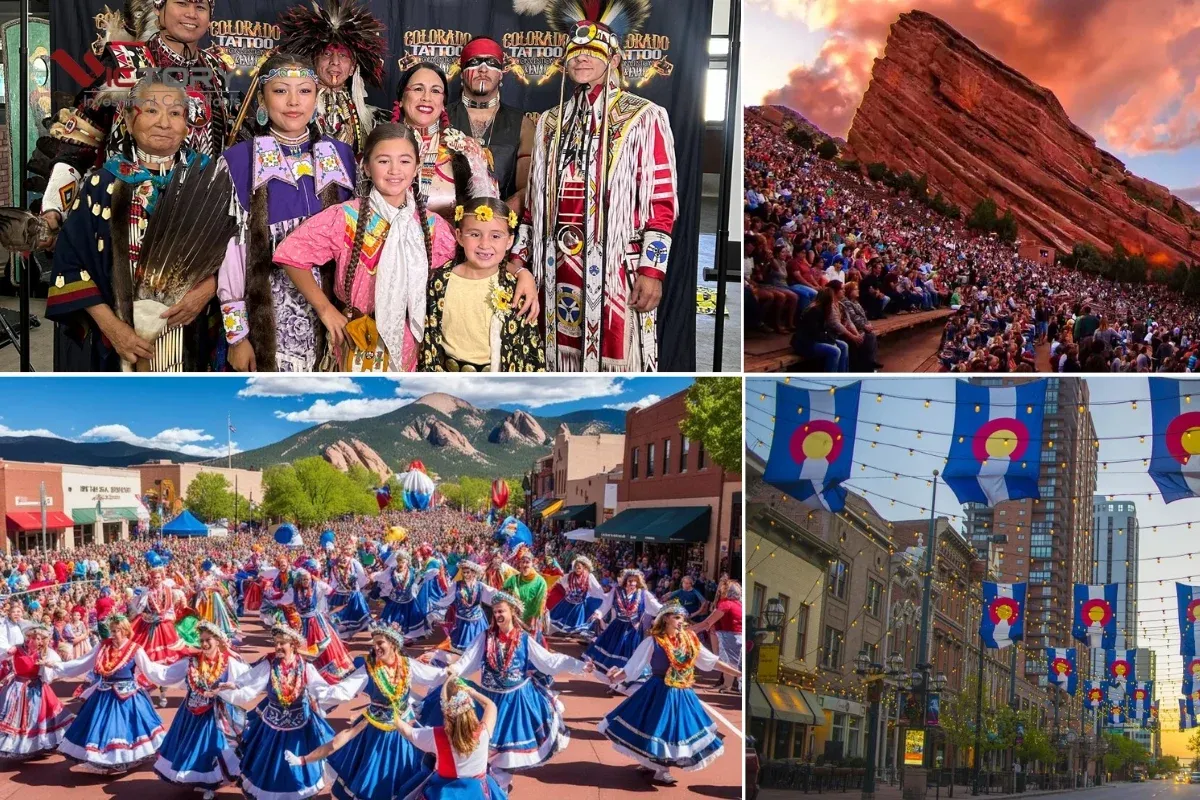Colorado, nestled in the heart of the American West, is renowned not only for the majestic beauty of the Rocky Mountains but also as a destination for leading scientists and nature researchers worldwide. Its diverse ecosystems, ranging from snow-capped peaks to arid deserts, provide an ideal setting for research and discovery. This article will guide you through some of the prominent nature research centers in Colorado, where knowledge is nurtured and new discoveries are made.
Colorado is also known for its dynamic capital, Denver, a thriving economic and cultural hub that attracts talent and investment from across the globe. This state is not just a captivating tourist destination but also a leading scientific and educational center, where innovative minds work to address global challenges related to the environment and climate change.
Rocky Mountain National Park: A Giant Natural Laboratory
Rocky Mountain National Park stands as one of the most vital nature preserves in the United States and a vast natural laboratory for scientists. Spanning over 415 square miles, the park encompasses diverse ecosystems, from pine forests to alpine meadows and glacial tundra.
Researchers at Rocky Mountain National Park focus on various fields, including:
- Climate Change Research: Monitoring the impacts of climate change on high-altitude ecosystems, including glacial changes, shifts in plant and animal distribution, and wildfire risks.
- Biodiversity Studies: Investigating the diversity of plant and animal species within the national park, as well as their interrelationships.
- Resource Management Research: Developing sustainable resource management practices to protect the park’s ecosystems for future generations.

Niwot Ridge LTER: A Window into Climate Change
The Niwot Ridge LTER (Long-Term Ecological Research) site is among the oldest and most respected LTER sites globally. Situated at over 3,000 meters in the Rocky Mountains, Niwot Ridge offers a unique “window” into the effects of climate change on high-altitude ecosystems.
Researchers at Niwot Ridge concentrate on several areas, including:
- Carbon Cycle Research: Studying how carbon is stored and transported in high-altitude ecosystems and how climate change affects this cycle.
- Hydrology Research: Investigating how snowmelt and streamflow impact high-altitude ecosystems and how climate change affects water supplies.
- Community Ecology Research: Examining the interactions between plant and animal species in high-altitude ecosystems and how climate change influences these interactions.
Mountain Desert Research Center: Exploring Life in Harsh Lands
The Mountain Desert Research Center (MDRC) is a non-profit research organization dedicated to studying mountain desert ecosystems in Colorado and surrounding regions. MDRC provides research opportunities for students, scientists, and resource managers.
Researchers at MDRC focus on diverse fields, including:
- Desert Ecology Research: Studying how plants and animals adapt to the harsh conditions of mountain deserts, including high temperatures, low rainfall, and intense solar radiation.
- Geology Research: Investigating the formation and evolution of mountain desert landscapes, including canyons, plateaus, and sand dunes.
- Water Resource Research: Studying sustainable water resource management in mountain desert areas, where water is a scarce resource.

Rocky Mountain Biological Laboratory: Training Future Scientists
The Rocky Mountain Biological Laboratory (RMBL) is an independent field station located at nearly 3,000 meters in the Rocky Mountains. RMBL offers courses and research opportunities for students and scientists from around the world.
RMBL is renowned for its long-term research program on the ecology of wildflowers. Researchers at RMBL have monitored the flowering, reproduction, and distribution of hundreds of wildflower species for over 40 years, providing profound insights into the impacts of climate change on high-altitude ecosystems.
Colorado is a hotspot for nature research, with numerous research centers and organizations dedicated to exploring and protecting the state’s diverse ecosystems. These research centers play a crucial role in enhancing our understanding of the natural world and in developing sustainable solutions for the environmental challenges we face.
Colorado State Forest Service Nursery: Preserving Plant Biodiversity
The Colorado State Forest Service Nursery plays a vital role in preserving the plant biodiversity of the state. This nursery provides seedlings for forest restoration projects, soil and water conservation, and wildlife habitat improvement.
Key activities of the Colorado State Forest Service Nursery include:
- Seed Collection and Conservation: Collecting seeds from native Colorado tree species and conserving them in seed banks.
- Seedling Production: Growing seedlings from collected seeds and providing them for forest restoration and environmental protection projects.
- Research and Development: Researching more effective tree propagation and planting methods to ensure the success of forest restoration projects.

Conclusion
Colorado is not only a beautiful state with stunning natural landscapes but also a leading scientific research hub. Nature research centers in Colorado are instrumental in helping us better understand the natural world, especially in the context of increasingly critical climate change. Supporting and developing these centers is essential for protecting the environment and ensuring a sustainable future for our planet. If you are a nature enthusiast with a passion for science, Colorado is definitely a destination not to be missed.